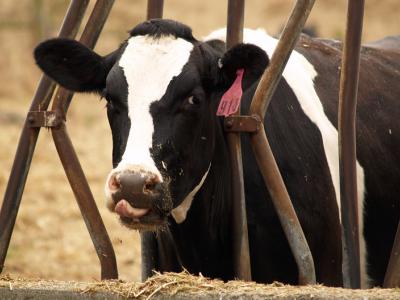MERS strikes 82-year-old Saudi man who drank camel milk
For the fourth day in a row, Saudi Arabia's Ministry of Health (MOH) has confirmed a new case of MERS-CoV, this one in an 82-year old Saudi man from the city of Alkharj in the central part of the country not far from Riyadh, according to an MOH update today.
The man, who is clinically ill but not in an intensive care unit, had underlying medical conditions, the report says. He is not a healthcare worker but he did report drinking camel milk.
Since June 2012, MERS-CoV (Middle East respiratory syndrome coronavirus) has struck 763 people in Saudi Arabia. Ten cases are active currently, and 324 case-patients have died.
The country saw a dramatic peak in cases during the spring of this year, then a lull over the summer and a small but steady stream recently.
Oct 14 MOH update
CDC develops faster EV-D68 test
The Centers for Disease Control and Prevention (CDC) has developed and started using a new, faster lab test for detecting enterovirus D68 (EV-D68) that will help it assess the remaining roughly 1,000 specimens it has left to test, the agency announced today.
The virus has sickened 691 people in 46 US states in recent weeks, almost all of them children. That number did not change today, however, even though the CDC updated its outbreak page.
"CDC has received substantially more specimens for enterovirus lab testing than usual this year, due to the large outbreak of EV-D68 and related hospitalizations," said Anne Schuchat, MD, director of CDC's National Center for Immunization and Respiratory Diseases, in a CDC news release. "This new lab test will reduce what would normally take several weeks to get results to a few days."
Since the outbreak of EV-D68 began in August, the CDC has tested 1,163 specimens. Of the specimens tested by the CDC lab from Aug 1 to Oct 10, about half have tested positive for EV-D68. The new "real-time" lab test will greatly speed up the testing of specimens received by the CDC since mid-September.
Also, the CDC on Oct 10 published advice for parents on EV-D68.
Oct 14 CDC news release
CDC EV-D68 outbreak page
Oct 10 CDC advice for parents
First chikungunya cases reported on Tahiti
Editor's Note: The last paragraph of this scan was revised Oct 17 to correct a misstatement of the Oct 10 PAHO number.
The first cases of locally acquired chikungunya were reported on the island of Tahiti in French Polynesia, according to a ProMED post yesterday bases on a translated Reuters France story.
Locally transmitted chikungunya infection was confirmed in 15 patients following reports of joint pain, fever, and rash. Most cases occurred in Tahiti's Teva I Uta municipality. French Polynesian President Edouard Fritch is advocating mosquito control measures during the upcoming rainy season, which generally lasts from November to April, the story said.
Chikungunya cases (suspected and confirmed) in the Americas and Caribbean currently number approximately 759,948, according to a Pan American Health Organization (PAHO) Oct 10 update.
Oct 13 ProMED update
Oct 11 Reuters France report
Oct 13 CIDRAP News scan on chikungunya case increase









